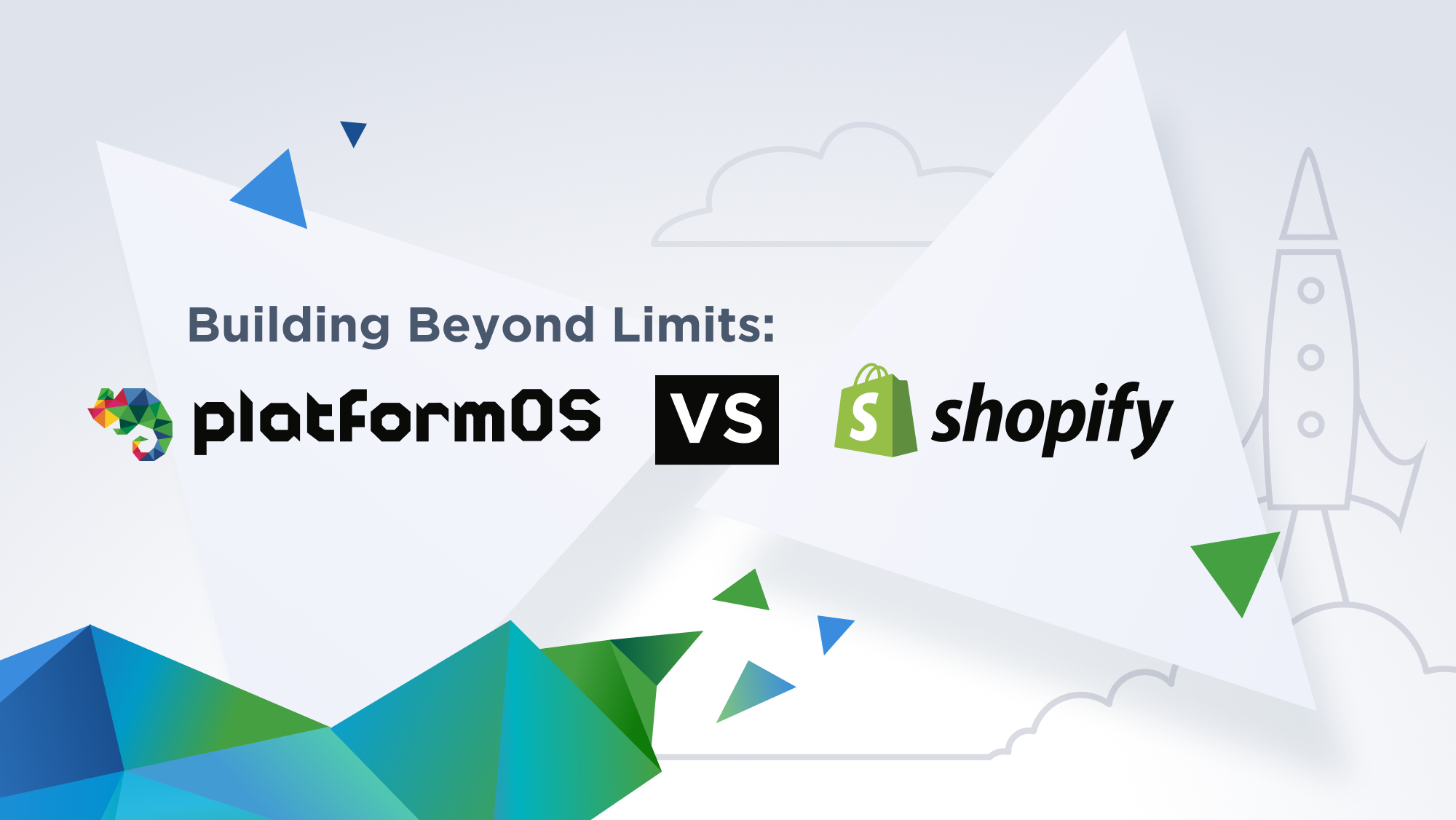Building Beyond Limits: platformOS vs. Shopify
Tamás Simon | June 10, 2024

Choosing the right e-commerce platform for your business is vital. Recently, Bernard Polidario from WeeklyHow, a well-known YouTube influencer and expert in e-commerce platforms, released a comparison between platformOS and Shopify. The video highlights the strengths and unique features of our platformOS PaaS solution and explains why platformOS can be the ideal choice for your business needs.
The WeeklyHow channel provides comprehensive tutorials on Liquid markup, Shopify reviews, and comparisons related to e-commerce platforms and web development. Through detailed, easy-to-follow, and entertaining content, WeeklyHow aims to help entrepreneurs, developers, and business owners build and optimize their online businesses.
Make sure to subscribe for future updates and the latest insights in e-commerce!
Understanding the platforms
platformOS is a robust Platform-as-a-Service (PaaS) solution designed to provide flexibility, customization, and scalability for businesses of all sizes. It enables developers to create highly tailored e-commerce solutions and any other type of business applications that meet specific business requirements. The platform allows you to create and host anything from small websites to large enterprise applications or even entire SaaS products.
Shopify is a well-known e-commerce platform that offers a user-friendly interface and a variety of tools to set up an online store quickly. Due to its ease of use and comprehensive support, it's particularly popular among small-to-medium-sized businesses. It's a platform you can confidently navigate, especially if you're new to e-commerce.
Key comparison points
Customization and flexibility
platformOS:
- Provides direct access to the source code, allowing developers to create unique, tailored solutions while fully owning their data and intellectual property as they scale.
- Utilizes technologies such as Liquid and GraphQL, making it easier for developers familiar with these tools to transition to and build on the platform.
- Enables the creation of marketplaces, SaaS products, and even your own Shopify-like platforms, due to built-in multi-tenancy.
- Suitable for complex, large-scale projects requiring specific functionalities not available out-of-the-box.
- Allows you to develop the back-end for mobile applications on an enterprise scale.
Shopify:
- Provides a range of templates and plugins that simplify the setup process.
- Limited in deep customization, making it less suitable for businesses with unique or complex needs.
- Best for businesses looking for a straightforward, quick-to-launch solution.
Development workflows
platformOS:
- The platformOS Command Line Interface (pos-cli), similar to Shopify's CLI, streamlines development workflows.
- Allows synchronization of local projects with staging environments and ease of deployment from local to production.
- The development process is straightforward and easy to learn. For a comprehensive onboarding experience and a free trial, visit platformos.com/try!
Shopify:
- Uses its own CLI and Liquid language for development, which might require learning for new developers.
- Generally easier to set up quickly but might need additional apps for advanced features.
Scalability and performance
platformOS:
- Built to handle high traffic and large volumes of transactions with ease.
- Scalable infrastructure that grows with your business, ensuring consistent performance even as demand increases.
- Suitable for enterprises expecting rapid growth and needing a robust back-end.
- Your business has the possibility of running platformOS on its own infrastructure.
Shopify:
- Scalable to a certain extent but may require additional investment in higher-tier plans to manage substantial growth.
- Performance can be affected by the number of plugins and third-party integrations.
- As a Software as a Service solution, you don't own your code but rent it.
Cost-effectiveness
platformOS:
- Pricing is tailored based on the specific needs and scale of the project.
- Lower long-term costs due to reduced need for additional apps and plugins.
- Offers a strong ROI for businesses that require a custom-built solution.
- Automated DevSecOps reduces your back-end resource investment.
Shopify:
- Transparent pricing tiers can become costly with the addition of various apps and premium themes.
- Monthly fees can add up, especially for businesses requiring advanced features.
Community and support
platformOS:
- Strong developer community providing support and sharing knowledge.
- Access to direct support from the platformOS team for troubleshooting and custom development.
- Growing ecosystem of development agencies building all manner of applications that are available through the developer partner portal.
Shopify:
- Extensive documentation and a large community of users.
- Comprehensive customer support available through various channels.
Conclusion
The video highlighted the distinct advantages of platformOS for businesses needing a highly customizable, scalable, and cost-effective solution. While Shopify remains famous for its ease of use and quick setup, platformOS stands out for those requiring a tailored approach to meet unique business needs—from e-commerce to healthcare startups to government applications.
Experience the flexibility, customization, and scalability of platformOS for yourself.
Whether you're building a marketplace, a SaaS product, or a Shopify-like e-commerce solution, platformOS has the tools you need to succeed.